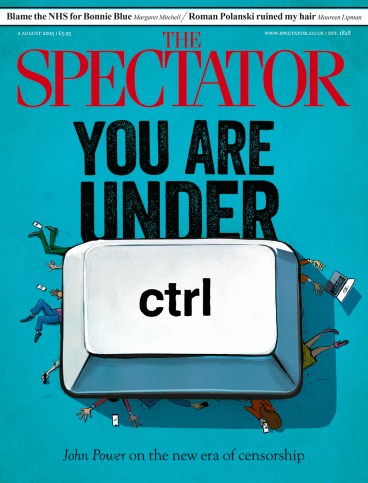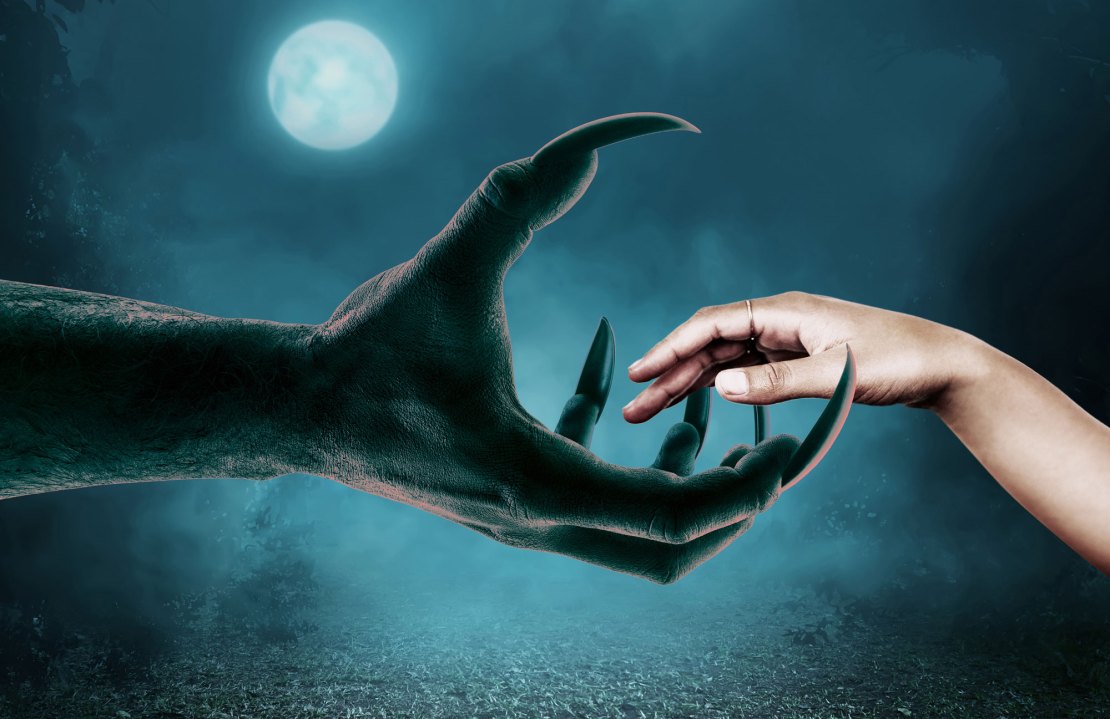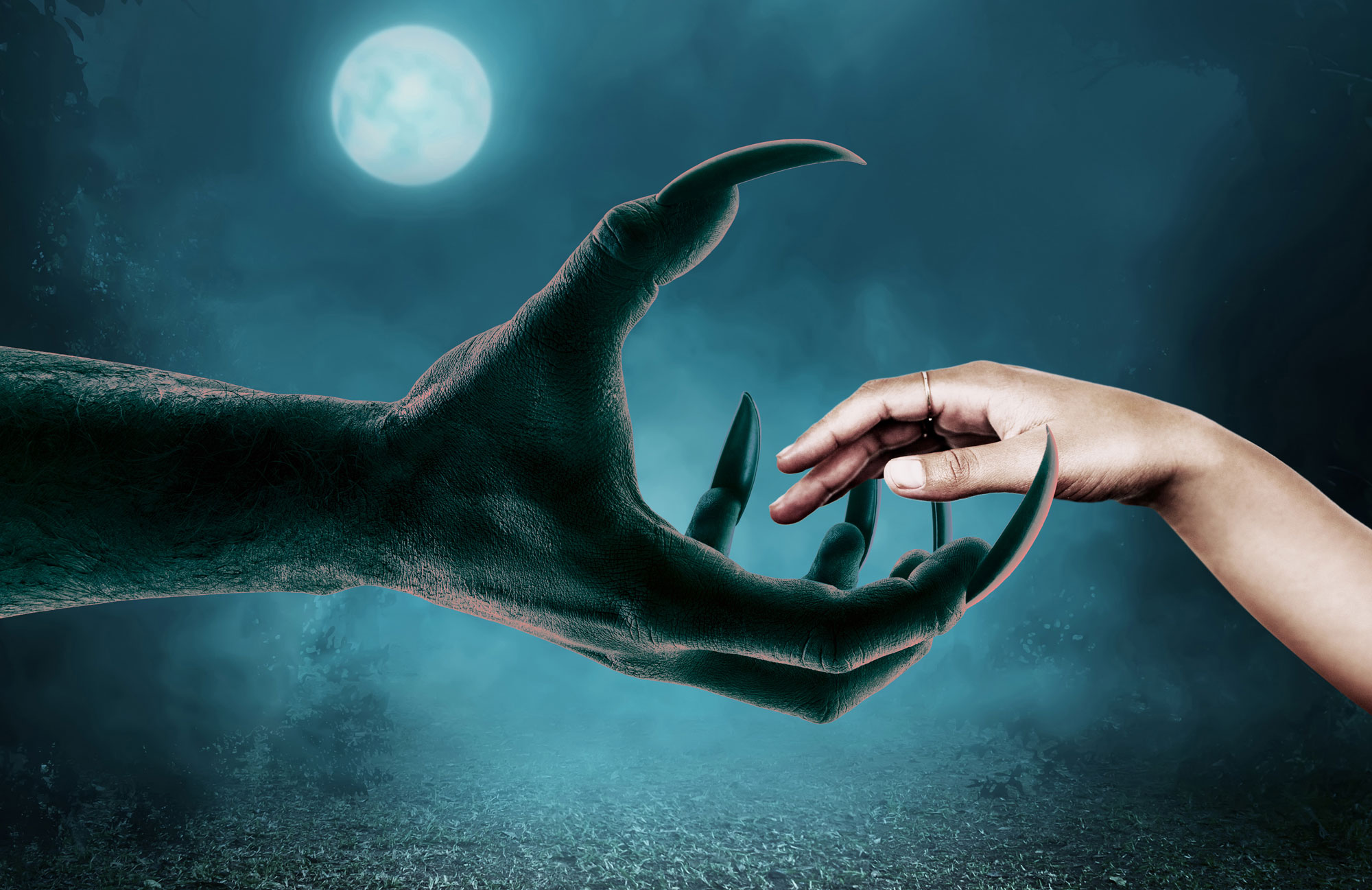
When the willowy human Feyre meets the faerie Tamlin in A Court of Thorns and Roses (known as ACOTAR by fans), he is a ‘snarling gigantic beast with golden fur’. Drama ensues when Tamlin, with his ‘elf-like horns’ and ‘yellow fangs’, kidnaps Feyre. He keeps her in captivity, then claims her: turning up in her room at night and clamping his teeth down on to her neck against her will. Two hundred pages later, the pair finally have sex and Feyre marvels that while ‘his claws were out’ they are ‘devastatingly gentle on my hips as he slid down between my thighs and feasted on me’. She moans his name and he ‘sheathed himself inside me in a powerful, slow thrust that had me splintering around him’.
Welcome to ‘romantasy’, the genre that is single-handedly propping up women’s literature. The world of The Lord of the Rings and The Faerie Queene has been crossbred with Mills & Boon and E.L. James. It’s Fifty Shades of Fur. Fantasy, a genre once reserved for video game-loving nerds, meets the airport beach read. The heroes are dragons, faeries who appear as stags and shapeshifters; the sex is far more explicit and, crucially, violent.
A Court of Thorns and Roses began the trend. It has now sold 13 million copies. Hashtags dedicated to ACOTAR on TikTok have billions of views and it has been rated by almost four million people on Goodreads. So popular is the book that Bloomsbury has just launched, Bloomsbury Archer, a Science Fiction and Fantasy imprint across the full spectrum of the genre.
‘Chick lit’ is nothing new. Neither is erotica. But the romantasy phenomenon is something else. It is literature taken to its lowest form. Most other books are either character- or plot-driven. Romantasy is trope-driven; Stockholm syndrome seduction, enemies to lovers or ‘he’s an assassin’. The plotlines are contrived and ridiculous, and the male characters think and talk in a way no man ever has, nor will.
From Blood and Ash (you can see how easy it is to come up with a title for this tosh) is a romp through a medieval world of vampiric werewolves. When our heroine Poppy first meets Hawke, the sexy lycanthrope, her first observation is ‘how tight his breeches were, how they gloved his body, leaving very little to the imagination’. Plot is merely a device to take us from one sex-fuelled encounter to the next. Poppy is left ‘warm and tingling’, a feeling which reminds her of her ‘first sip of bubbly champagne’. This is the fever dream of a teenage girl.
The heroes are dragons, faeries who appear as stags and shapeshifters; the sex is explicit and, crucially, violent
Romantasy is sold to women via ‘tags’. Books are advertised on ‘BookTok’ as ‘magical fairytale but the villain gets the girl’, ‘fairy Cinderella retelling with a love triangle’, ‘sexy Vikings’ and ‘post-apocalyptic magic assassins’. Readers are encouraged to pick out a ‘Book Boyfriend’ based on their preferred traits and are then funnelled into a series promising the exact components they’ve asked for.
This is a world constructed perfectly for Gen Z, who are terminally online. It’s literary BDSM. Bitty, derivative, sexual mulch. Reading these books grants you access to an exclusive online community. Are you more of a ‘forbidden love’ girl or do you like ‘dark academia romance’? Whatever it may be, content is being churned out for you.
These books aren’t even necessarily for reading. They are ornamental, to be displayed on a shelf as proof you are a member of the club. One of the most popular ways to collect romantasy books is through a subscription box such as FairyLoot or Illumicrate, both of which have waiting lists. You pay up to £50 a month and are sent a box containing a special hardback edition (reworked as a gold emblazoned objet d’art) and an assortment of tat including bookmarks, mugs and tiny bows and arrows. Publishers love these subscription services. They guarantee a book will be purchased tens of thousands of times and can immediately generate bestsellers.
Originality is not encouraged. For a book to find a coveted slot in the golden box, it needs to be almost the same as the previous book featured. Take two of the genre’s most popular novels. In Fourth Wing, Violet Sorrengail (a small, mousy, chronically ill teenager) is forced to attend a dangerous dragon school, all while avoiding death at the hands of one of the most powerful riders, Xaden Riorson (a dark, handsome dragon-rider who has rippling muscles). In another popular work, Powerless, Paedyn Gray is forced to compete in a series of Purging Trials all while concealing feelings for a prince who would murder her if he knew the truth about her.

What is most bizarre is that, despite violent and sometimes coercive sex being the main selling point for many of these books, each comes with a list of trigger warnings (which consequently remove any mystery). They alert readers to ‘kidnapping/imprisonment’, ‘ableism/ableist language’, ‘body shaming’ and ‘forced betrothal’, among a litany of other politically incorrect sins.
There is a profound cognitive dissonance at play here. Romantasy is for the generation who came of age during the excesses of fourth-wave feminism, trigger warnings and social justice. Rebecca Yarros, author of the Fourth Wing series, which has sold more than two million copies, is currently facing cancellation over allegations she may be a ‘Zionist’. Her crime: ‘perpetuat[ing] the idea that 7 October was an attack on children’ and refusing to ban translations into Hebrew. In a desperate bid to maintain readers, she has apologised for her ‘white privileged voice’ and donated books to Palestinian fundraisers. She knows, like all romantasy authors, that she is writing for the woke generation.
And yet almost all the books involved coercion and compelled sex. Does the popularity of romantasy betray something missing from Gen Z’s sanitised lives? The generation no longer having sex are devouring books which portray it in its basest form. The most hotly anticipated romantasy book of the year, Alchemised, is a direct reworking of a Harry Potter fan fiction written online. In it, Hermione Granger is sent as an enslaved surrogate to Draco Malfoy. Give me Emily Brontë any day over this.









Comments